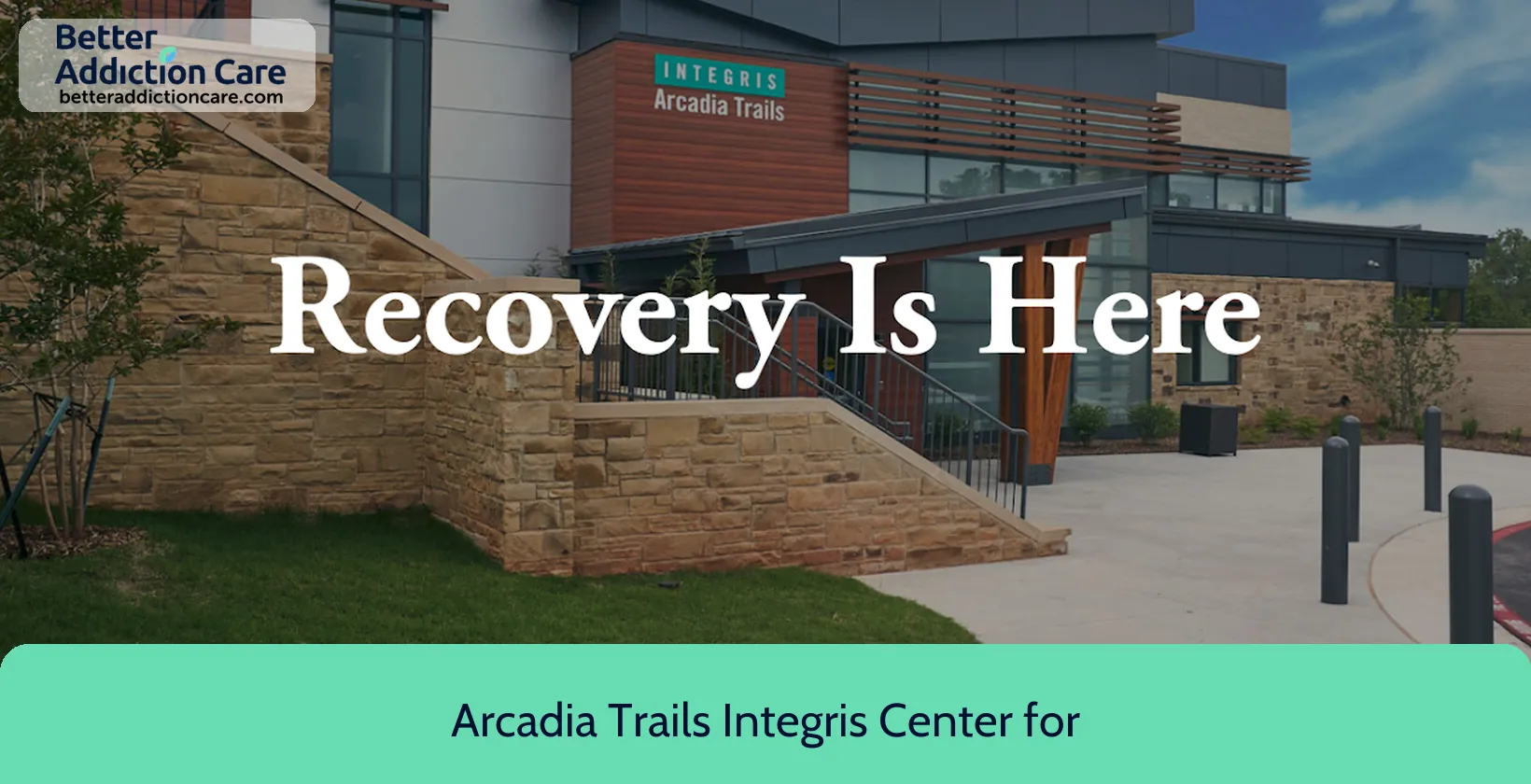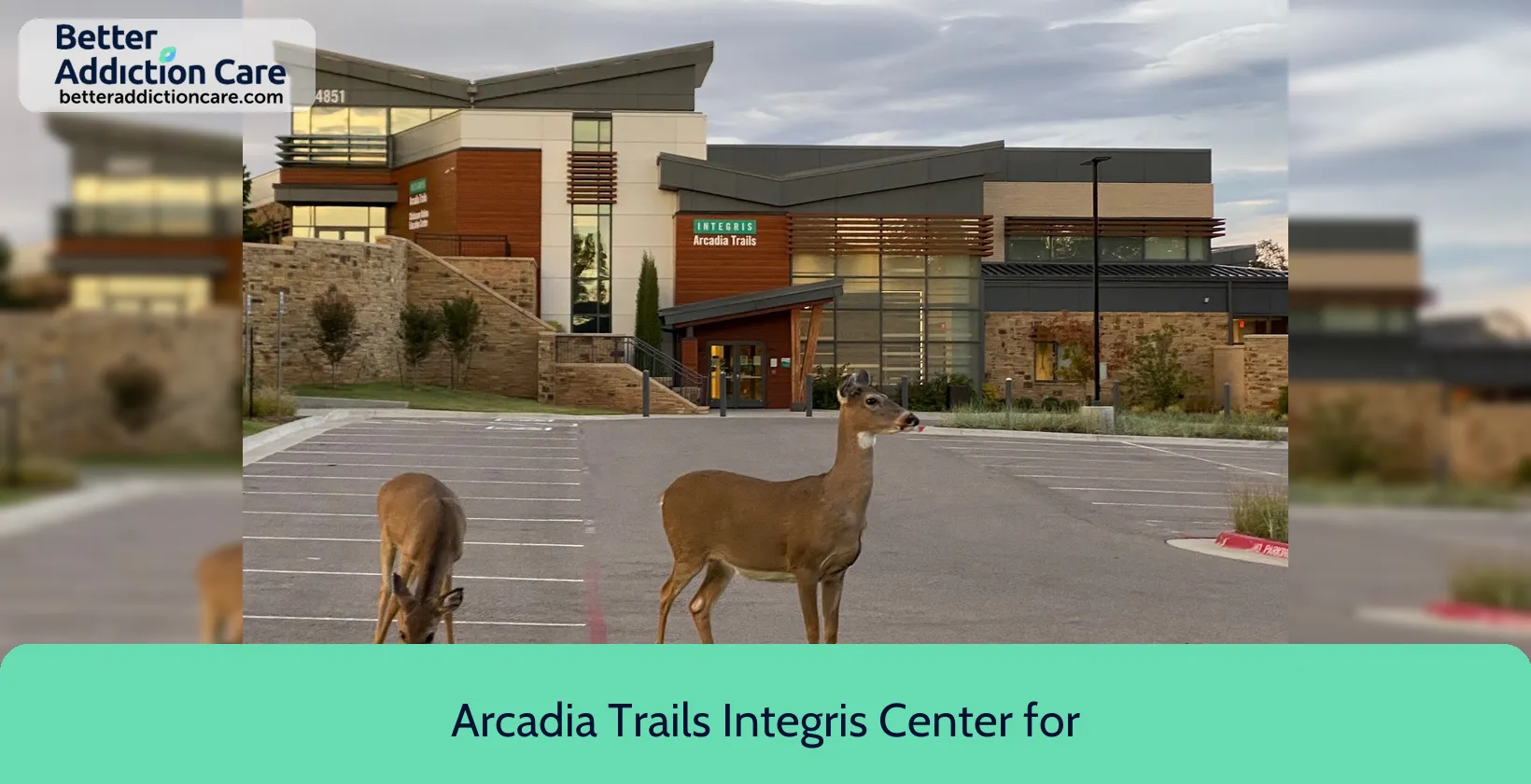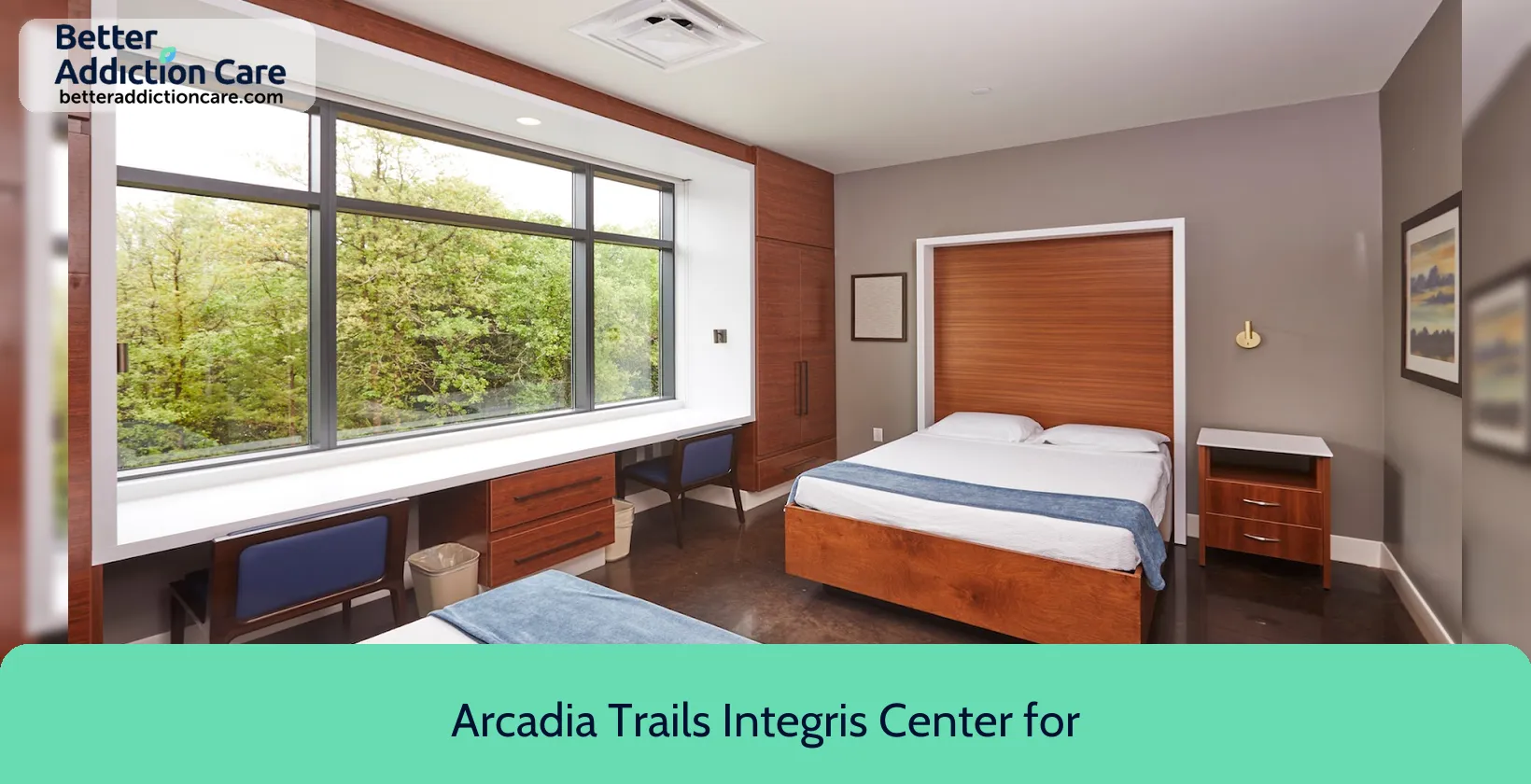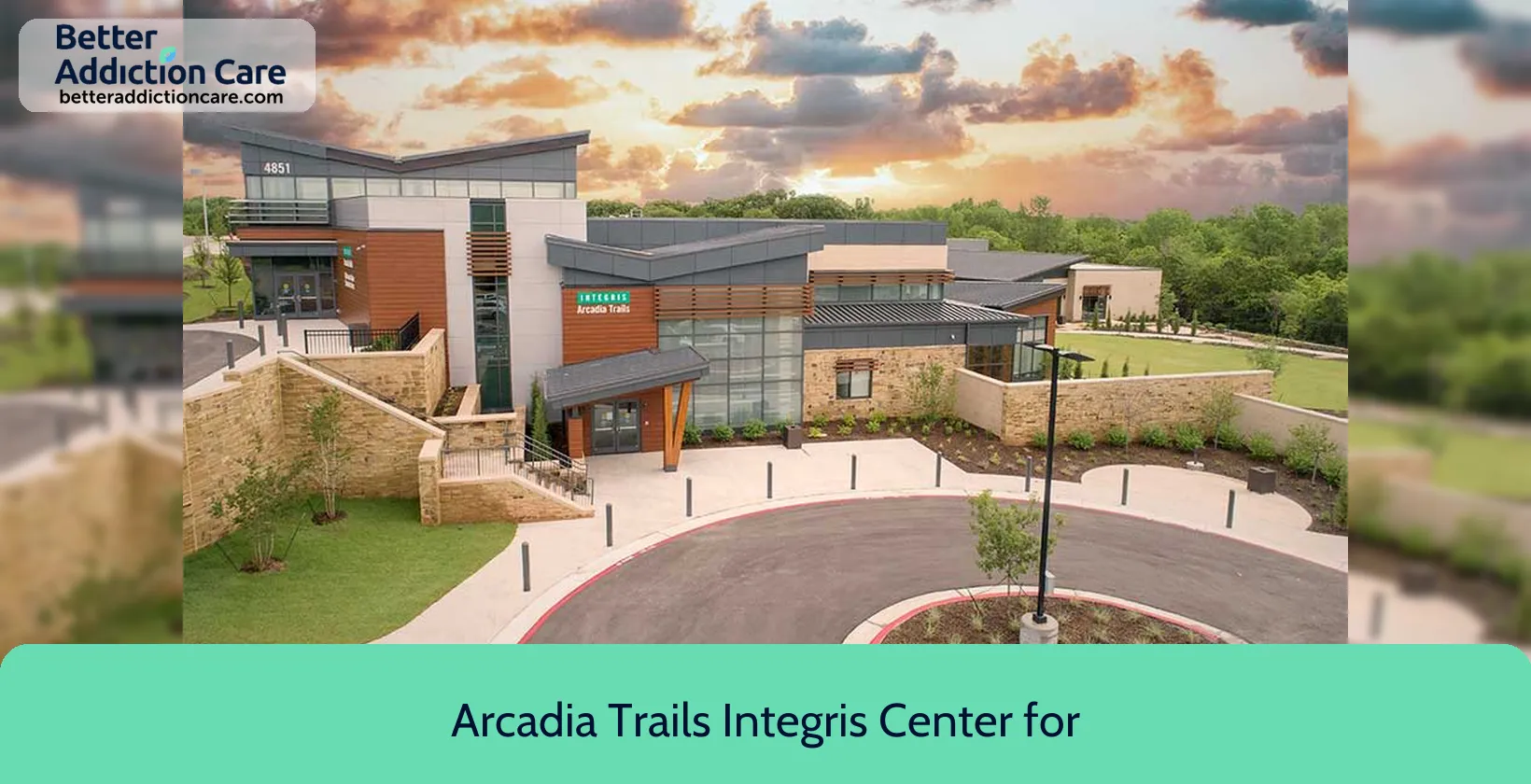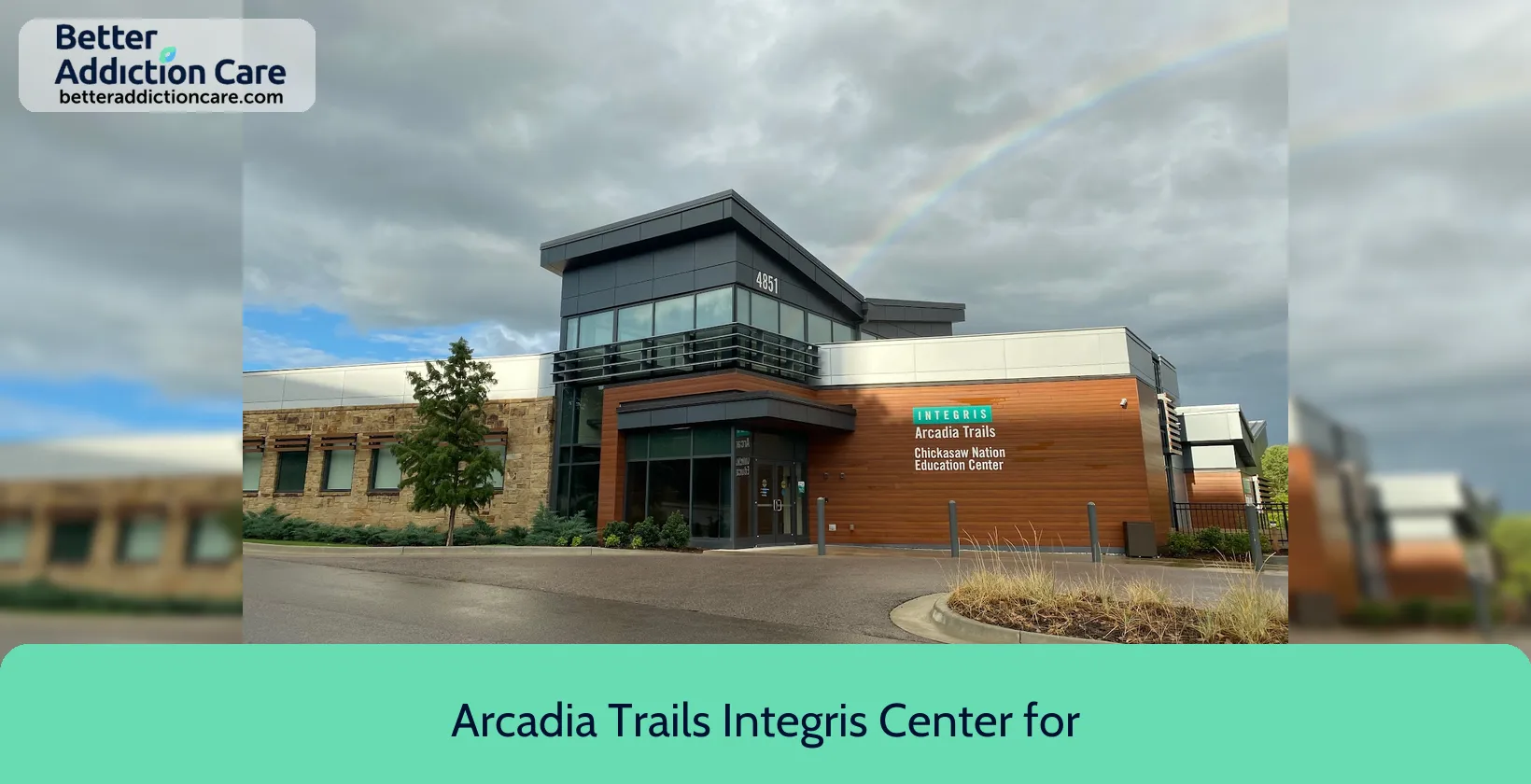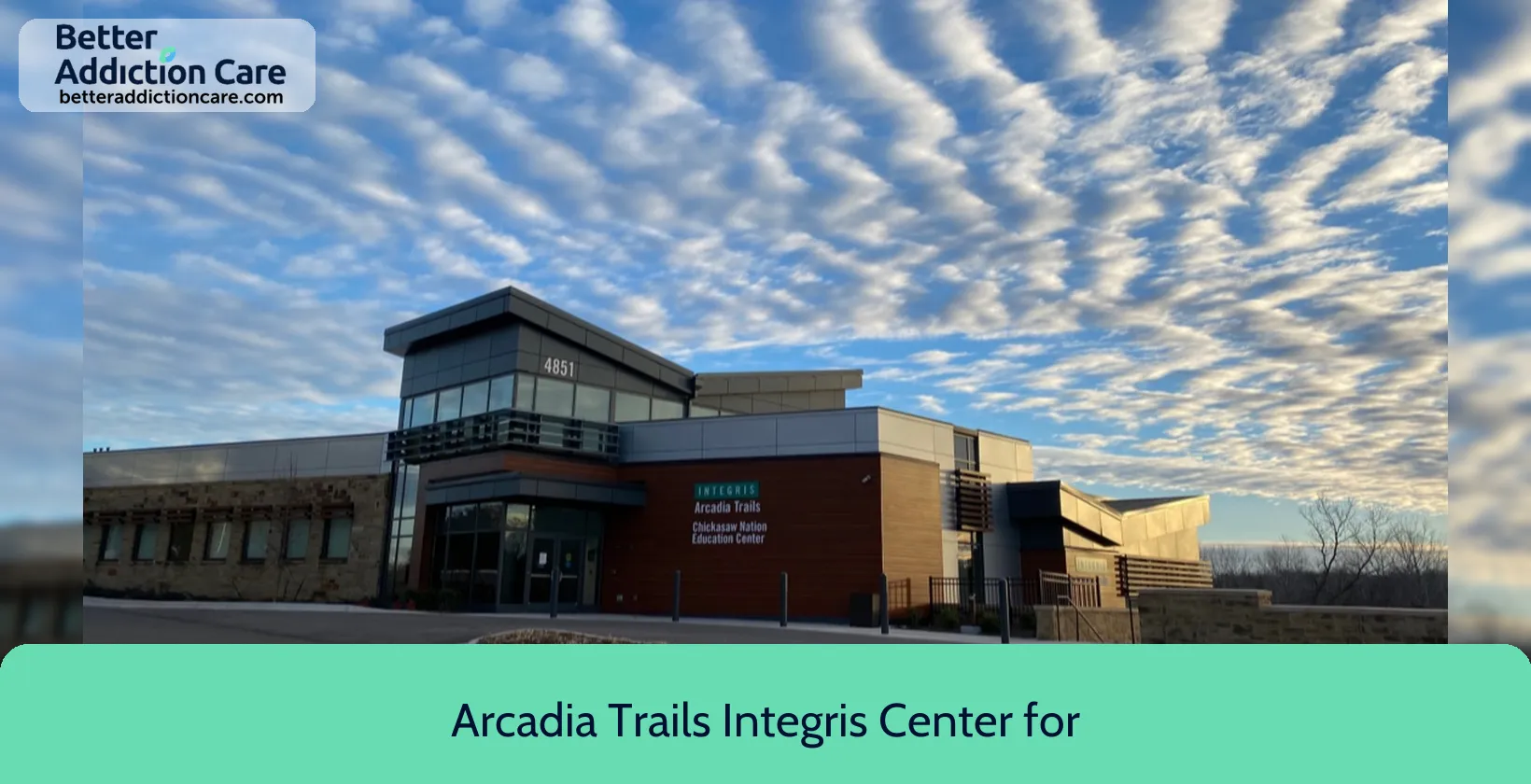Arcadia Trails Integris Center for Addiction Recovery
Overview
Arcadia Trails Integris Center for Addiction Recovery is a substance abuse treatment center for people seeking treatment near Oklahoma County. As part of their treatment modalities for recovery, Arcadia Trails Integris Center for Addiction Recovery provides cognitive behavioral therapy, substance use disorder counseling, and trauma-related counseling during treatment. Arcadia Trails Integris Center for Addiction Recovery is located in Edmond, Oklahoma, accepting cash or self-payment for treatment.
Arcadia Trails Integris Center for Addiction Recovery at a Glance
Payment Options
- Cash or self-payment
- Private health insurance
Assessments
- Screening for tobacco use
- Comprehensive mental health assessment
- Comprehensive substance use assessment
- Screening for mental disorders
- Screening for substance use
Age Groups
- Young adults
- Adults
- Seniors
Ancillary Services
- Case management service
- Mental health services
- Social skills development
Highlights About Arcadia Trails Integris Center for Addiction Recovery
7.40/10
With an overall rating of 7.40/10, this facility has following balanced range of services. Alcohol Rehabilitation: 8.00/10, Drug Rehab and Detox: 8.15/10, Insurance and Payments: 6.00/10, Treatment Options: 7.46/10.-
Drug Rehab and Detox 8.15
-
Alcohol Rehabilitation 8.00
-
Treatment Options 7.46
-
Insurance and Payments 6.00
Accreditations
State mental health department:
State mental health department accreditation refers to the process of evaluating and certifying the quality and standards of a state's mental health department, ensuring that it provides high-quality services and meets specific criteria for mental health care. The accreditation process is performed by a third-party organization and helps to improve the overall care and treatment of individuals with mental health conditions.
Commission on Accreditation of Rehabilitation Facilities (CARF):

CARF accreditation is a globally recognized certification for rehabilitation and human service organizations. It signifies that an organization meets high-quality standards and is committed to providing top-level care. Achieving CARF accreditation involves a rigorous evaluation process, including on-site surveys. This accreditation enhances an organization's reputation, instills trust in clients and funders, and encourages ongoing excellence in the field.
Treatment At Arcadia Trails Integris Center for Addiction Recovery
Treatment Conditions
- Alcoholism
- Substance use treatment
Care Levels
- Hospital inpatient treatment
- Outpatient
- Short-term residential
- Long-term residential
- Residential detoxification
Treatment Modalities
- Cognitive behavioral therapy
- Substance use disorder counseling
- Trauma-related counseling
- Smoking/vaping/tobacco cessation counseling
- Group counseling
Ancillary Services
Languages
- Sign language services for the deaf and hard of hearing
Additional Services
- Pharmacotherapies administered during treatment
- Mentoring/peer support
- Breathalyzer or blood alcohol testing
Special Programs
- Clients with co-occurring mental and substance use disorders
- Clients who have experienced trauma
Get Help Now
Common Questions About Arcadia Trails Integris Center for Addiction Recovery
Contact Information
Other Facilities in Edmond

6.68

6.71

6.77
DISCLAIMER: The facility name, logo and brand are the property and registered trademarks of Serenity in Solutions, and are being used for identification and informational purposes only. Use of these names, logos and brands shall not imply endorsement. BetterAddictionCare.com is not affiliated with or sponsored by Serenity in Solutions.
